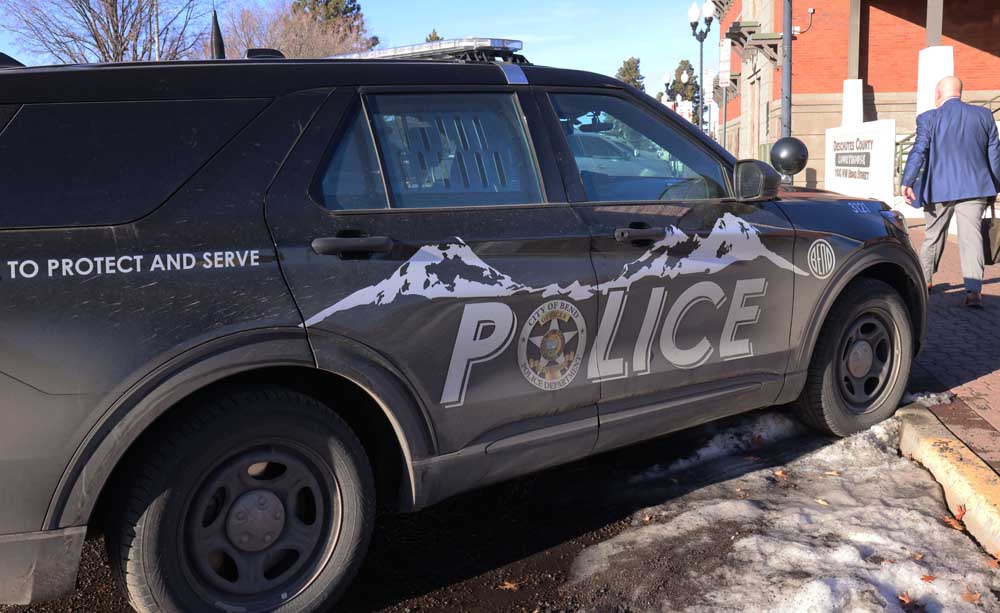Proposed change to Oregon’s bottle law has problems
Published 5:00 am Thursday, May 12, 2011
Forty years ago, Oregon stepped out as a leader in the recycling movement and adopted landmark legislation known as the “bottle bill.”
We heard on the House floor this week from Rep. Vicki Berger, R-Salem, that her father, the bottle bill’s original champion, was more concerned about recycling than litter when he brought the concept forward. Forty years ago, a bill solving a litter problem was easier to explain than a bill designed to preserve future economic resources for our state.
It makes sense then on the 40th anniversary of such an historic piece of legislation that expanding the bottle bill through House Bill 3145 would be a fitting legacy for Oregon’s commitment to the environment. In fact, Rep. Berger has much to be proud of in her efforts to modernize the bill. The bill covers additional plastics and aluminum beverage containers for items that were originally left out, like iced tea and juice. That is a good thing and I support it. As a legislator and a father with young children, finding a balance between utilizing resources for a healthy, prosperous life now and ensuring there are enough resources for my grandchildren later is an absolute priority.
However, the modernized bottle bill has a few flaws that should be addressed, both of which revolve around my concerns about the hunger problem we have in Oregon.
First is the burden we place on schools that are suffering from a lack of funds and whose food service staff are working diligently on trying to find ways to help children access food throughout the day. In 2007, when the Legislature expanded the bottle bill by adding bottled water, Julie Parrish, a former school food service director and now a state representative, offered an amendment to exclude schools from being charged a nickel by their distributors. Our public schools are the leaders in recycling, and these bottles get recycled rather than redeemed. Every nickel that a school district has to absorb on single-serve bottles is a nickel off the plates of children in the form of fresh fruits and vegetables, diminished summer meals programs or limited breakfast offerings. The amendment for schools wasn’t accepted in 2007, and it cost schools in Oregon thousands of dollars in lost nickels. The cost will be much more under HB 3145.
A bill in the Ways and Means Committee, Senate Bill 840, would put $180,000 into mini-grants to help schools offer snacks and after-school feeding options for children in need. If we could exempt schools from HB 3145 as it moves to the Senate for consideration, we can put more money back in the pockets of school food service programs across the state that are faced with rising food and labor costs.
Another flaw with HB 3145: When beverages are purchased by Oregonians with Supplemental Nutrition Assistance Program (SNAP, or food stamps) dollars, the cost of the container deposit reduces the benefit that is meant to buy food. If the SNAP benefit is designed to feed people, then we shouldn’t be charging a deposit against the Oregon Trail Card. Under the expanded bottle bill, the deposit on containers can rise to 10 cents, and that means a case of bottled water will draw down $2.40 of money meant for food — that’s almost 3 pounds of fresh apples at the current market price. Even if the beverage containers are redeemed, there is no guarantee the cash will be used for food.
Finally, another flaw with HB 3145 is an urban versus rural concern. The bill includes language for the creation of redemption centers to alleviate the burden at the grocery store. The pilot program for redemption centers will take place in large urban communities. That leaves smaller grocers to handle the increase in recyclables at the store level. In many of our rural communities, the stores are small operations. The increase in redeemable containers will cause an undue hardship that I don’t believe the bill’s sponsors intended but will definitely take place, mostly in rural areas. And, after the year 2018, HB 3145 permits a state agency to make decisions about what new containers can carry a deposit. The Legislature should not delegate that authority.
So while I voted no on HB 3145, I’ll be advocating for amendments on the Senate side to address my concerns about the unforeseen impact on Oregon’s hunger problems and the implications for rural communities. We can all agree Oregon’s bottle bill has done wonders for preserving the beauty of our environment and has helped us recapture important resources. When HB 3145 is fixed to address rural stores and hunger issues across Oregon, we can all celebrate what 40 more years of the bottle bill will do to help the Oregonians of tomorrow.






